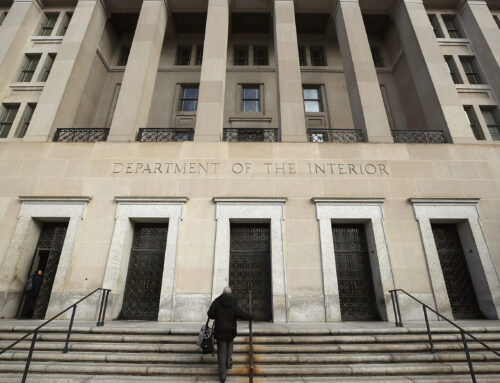Companies could have profits from breaking environment laws stripped under Australian refo
October 21, 2025
The Albanese government wants the power to strip companies of any financial gains made from breaking environment laws, as part of a package of landmark reforms to be put before parliament in the next two weeks.
In an interview with Guardian Australia, the environment minister, Murray Watt, also revealed he wants a definition of “unacceptable impact” to be part of the nation’s new environment laws.
Watt said consultations with environment groups and industry had landed on the need for a “clear, strong definition of an unacceptable impact”, which would mean areas were protected and businesses wouldn’t “waste their time” in pursuing projects that would never be approved.
He said several areas of contention on the laws – including how they deal with climate change and on the exact role of a new independent environment watchdog – were still to be finalised.
But he said he remained “optimistic” the laws would be passed before Christmas, and was willing to make deals with the Coalition or the Greens – or both – to make it happen.
The Guardian has reported that Watt has been privately encouraging business groups to lobby the Coalition to support the legislation, sparking concerns among environment groups that protections could be weakened.
On Tuesday, Watt said penalties for breaking environmental laws would be increased under the proposed reforms, including a new rule “to strip offenders of any financial advantage they gained from breaching environmental law”.
Sign up to get climate and environment editor Adam Morton’s Clear Air column as a free newsletter
Penalties for significant breaches would be set at $1.6m for an individual, and up to $825m for a business, while a new “civil penalty formula” would recoup any income offenders gained by a breach.
A new EPA would also have the power to issue a “stop work order” to prevent environmental harm, Watt will announce on Wednesday.
Watt also said the government had not determined whether a minister would retain the right to make final decisions on major projects – a role that could be in the remit of a new independent Environmental Protection Authority. This came after it was reported that he would remain the key decision-maker.

Almost five years ago, a review of the current Environmental Protection and Biodiversity Act found the laws were failing habitats and species.
A centrepiece of the review’s recommendations was the need for a set of national environmental standards, but Watt said those standards won’t be finalised until next year.
The standards would be set under regulation but Watt said the legislation would include a “non-regression clause” which he said “means that the standards over time won’t be able to go backwards”.
Watt said the legislation would include a provision where projects must demonstrate a “net gain” for the environment, which he said could be achieved through offsets.
He said there would be “a legislated requirement that proponents of projects need to avoid or mitigate environmental damage before they look to offsets”.
Watt said he had held more than 80 meetings with industry, environment groups and other stakeholders on the reforms since taking over as environment minister from Tanya Plibersek in May.
“This is the most challenging task I’ve taken on while I’ve been a minister,” he said.
“Anyone who’s got an interest in this legislation does want it to be enduring, and they realise this is the one chance we’re probably going to have, maybe for a generation, to solve these issues and to get these reforms in place.”
He said he hoped that as final negotiations started, the lengthy meetings and engagement in recent months had built up enough goodwill to allow for compromise and agreement.
“Most of the stakeholders recognise that they’re better off trying to get most of what they want rather than get nothing and to have to stick with the laws that we’ve got in place at the moment,” he said.
“That’s the alternative we’ve got here, is we either make these changes or we stick with a law that everyone recognises is broken.”
Search
RECENT PRESS RELEASES
Related Post




